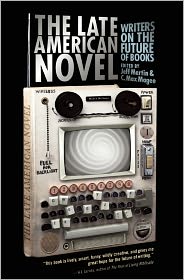

Pat Kucher, the Head of Technical Services, will retire on August 1 after twenty-four years of service. Pat is responsible for processing and cataloging Acorn’s materials, as well as selecting movies, television shows, and paperback books. Here, she shares her Acorn experiences, and tells us about her favorite books, movies, and destinations.
Q: You’ve worked at Acorn for twenty-four years. What an accomplishment! How has your job changed during that time?
A: I started before we were computerized. The computer has certainly made the biggest impact on my job. Also, the types of media the Library offers have really changed. We used to have books on cassette, now we have digital books.
Q: What’s your favorite part of your job?
A: Opening the boxes of new books.
Q: You’re a voracious reader. Who are some of your favorite authors?
A: I love Michael Connelly for the terrific police and courtroom drama. I also love the Stephanie Plum series by Janet Evanovich for laughs. Jodi Picoult is another hands-down favorite. She handles controversial subjects thoughtfully and without bias.
Q: You choose the Library’s feature films and television series. What are some of your favorites?
A: My favorite movies are Gone with the Wind, The Notebook, and The English Patient. The last good movie I saw was Inception.
I really enjoy the some of our television series—especially Mad Men and The Tudors.
Q: I know you love traveling as well. What’s your favorite vacation spot (so far)?
A: Nassau in the Bahamas. I’m planning another visit there in June. Jamaica is great, too! Really, I’m happy anywhere there’s a Sandals Resort.
Q: Is there anything else you’d like to share about yourself or your time at Acorn?
A: I love to read and started coming to Acorn when it was just a small A-frame building. When I decided to get back into the workforce after my children were old enough, I thought it would be the perfect place to work…and it was. I plan to retire this summer, but I’ll never retire from reading!
Thank you for your many years of dedicated service, Pat! You will be greatly missed.
-Megan
 Cinephiles: rejoice! Ebert Presents: At the Movies just got a new, very spirited reboot. Your excellent hosts are now Christy Lemire of the Associated Press and Ignatiy Vishnevetsky of Mubi.com. Each week, they review high-profile theatrical releases, under the radar indies, and their favorite new DVDs and Blu-Rays; and patriarch Roger Ebert drops by to lend his inimitable style to a select film.
Cinephiles: rejoice! Ebert Presents: At the Movies just got a new, very spirited reboot. Your excellent hosts are now Christy Lemire of the Associated Press and Ignatiy Vishnevetsky of Mubi.com. Each week, they review high-profile theatrical releases, under the radar indies, and their favorite new DVDs and Blu-Rays; and patriarch Roger Ebert drops by to lend his inimitable style to a select film.


